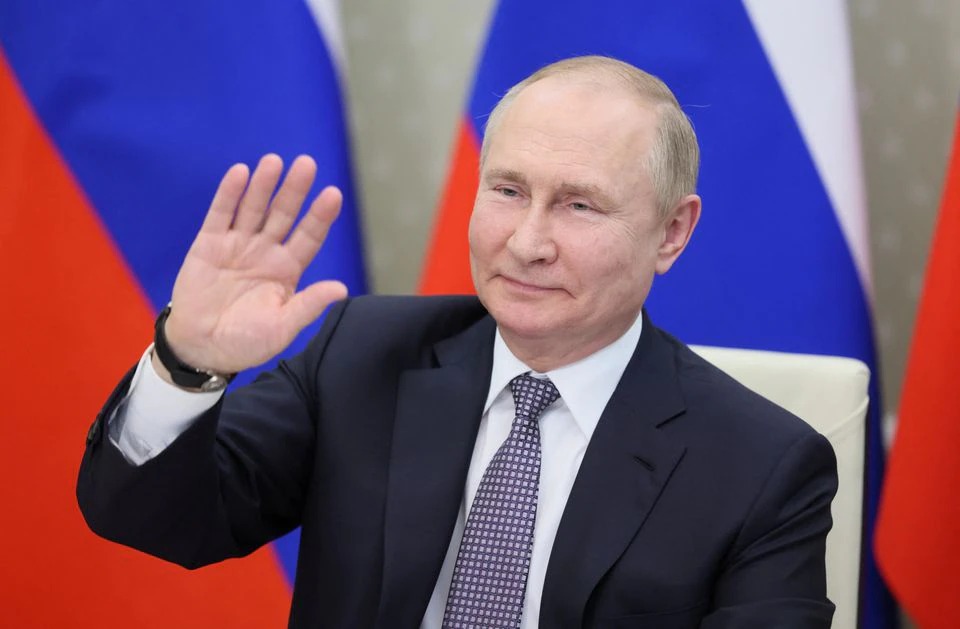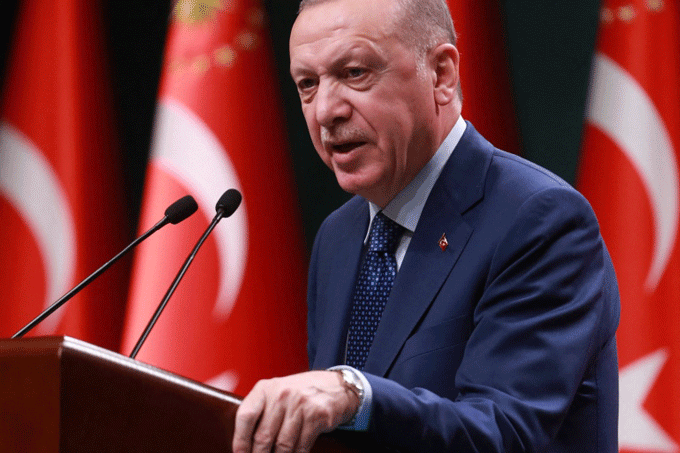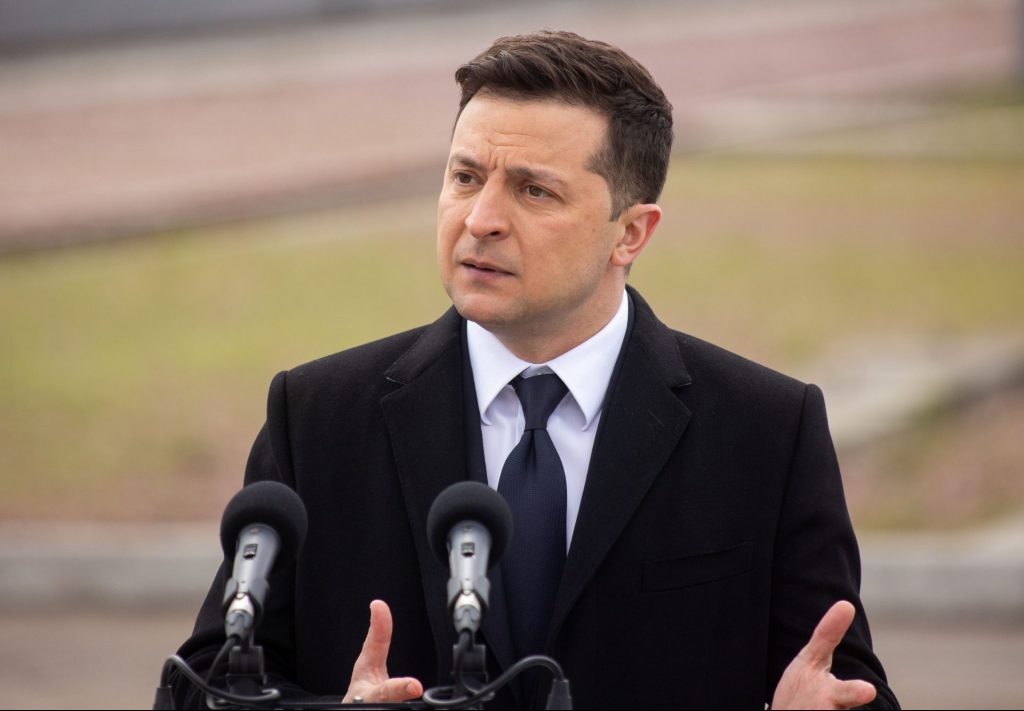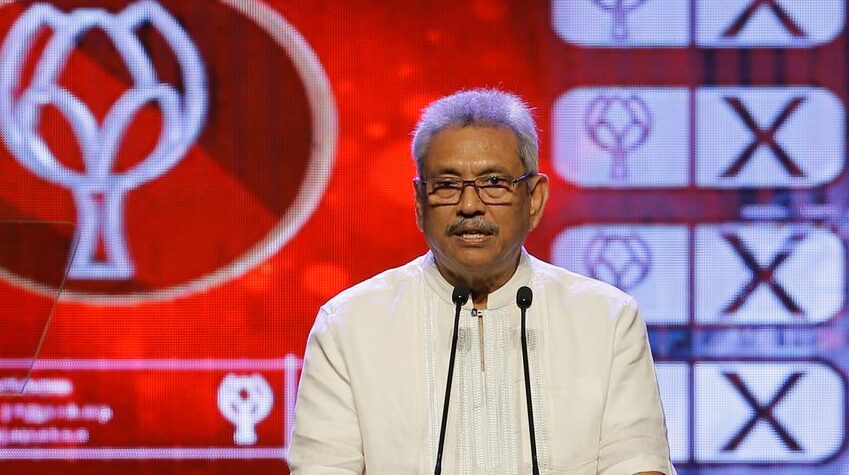
President Volodymyr Zelensky has suspended the head of Ukraine’s spy agency (SBU) and the prosecutor general, citing many cases of treason in the two powerful organisations.
He said more than 60 former employees were now working against Ukraine in Russian-occupied areas.
A total of 651 collaboration and treason cases had been opened against law enforcement officials, he added.
The officials, Ivan Bakanov and Iryna Venediktova, have not commented.
In a video address late on Sunday, Mr Zelensky said: “Such an array of crimes against the foundations of the national security of the state… pose very serious questions to the relevant heads [of the two organisations].”
“Each of these questions will receive a proper answer,” the Ukrainian president added.
In a later appearance on Ukrainian TV, Andriy Smirnov, one of Mr Zelensky’s top advisers, clarified that the officials have not been fired, as initially suggested, but merely removed pending an investigation.
“In order to prevent the potential influence of these two officials on criminal proceedings, which are being investigated in relation to SBU employees who are suspected of cooperation with the aggressor country, and the same applies to the prosecutor’s office, the president made appropriate decisions,” Mr Smirnov said.
- Chamisa under fire over US$120K donation
- Mavhunga puts DeMbare into Chibuku quarterfinals
- Pension funds bet on Cabora Bassa oilfields
- Councils defy govt fire tender directive
Keep Reading
The removal of SBU chief Ivan Bakanov, a childhood friend of Mr Zelensky, follows the high-profile arrest of a former SBU regional head in Crimea, annexed by Russia in 2014. Oleh Kulinych is suspected of treason.
“Everyone who together with him was part of a criminal group that worked in the interests of the Russian Federation will also be held accountable,” Mr Zelensky said. “It is about the transfer of secret information to the enemy and other facts of co-operation with the Russian special services.”
Senior intelligence officials based in Kherson have also been charged and Mr Zelensky suggested that further action would be taken against other SBU officers.
It has long been assumed Ukraine had a problem with Russian infiltration of its security services and in his speech Mr Zelensky sought to lay out the impact of repeated security breaches.
It will come as no surprise to many in Ukraine that Moscow tried to infiltrate their security services and prosecutor’s office.
Russia’s FSB has a long history of trying to work from the inside. Indeed, all intelligence agencies do. That is how they work.
What may be more shocking is the extent to which they succeeded, seemingly undermining Ukraine’s defences at a crucial moment. The strategically important city of Kherson fell in days, with bridges that should have been blown up apparently left standing.
The fear is that the insidious actions of a surprisingly large number of Ukrainian officials and officers helped Russia’s offensive and left Ukraine exposed.
It is not being suggested that either Ivan Bakanov or Iryna Venediktova betrayed their country, but that they ran organisations where others did. For that, they have both been suspended from their offices.
It is also worth remembering that the problem of security service infiltration is not unique to Ukraine.
Indeed, shortly after the start of the war there was reportedly a purge of FSB officers suspected of working for Ukraine or at least being sympathetic to their cause.
There will be no secret service on earth that doesn’t have some issues with foreign agents. But the apparent scale of this will be genuinely concerning to Ukrainians, especially coming at a time when the stakes could not have been higher. There have been reports for several weeks that Mr Zelensky wanted to replace Mr Bakanov after coming to blame him for failures in stopping the Russian advance in February.
The 47-year-old was picked to lead the intelligence agency in 2019 after managing Mr Zelensky’s insurgent campaign for the presidency. Opposition figures criticised the appointment, arguing that the former TV producer was unqualified to lead the SBU.
Mr Bakanov’s deputy, Vasyl Malyuk, was announced as the acting head of the SBU in a decree posted to the presidential website on Thursday.
Meanwhile, Ms Venediktova will be succeeded by her deputy, Oleksiy Symonenko. She took office in 2020 as Ukraine’s first female law enforcement chief after Mr Zelensky fired her predecessor, accusing him of not producing results.
But he warned at the time that someone else would be hired if she could not clamp down on corruption in the country.
Earlier this month Ms Venediktova told the BBC that her office was investigating some 21,000 war crimes and crimes of aggression allegedly committed by Russia since the start of its invasion.
In other developments:
- Canada flew a repaired turbine for Russia’s Nord Stream 1 gas pipeline to Germany, Russia’s Kommersant newspaper reports. It is expected to reach Russia within five to seven days. There have been fears that Russia could use annual repairs to the line to shut down gas deliveries to Europe
- Police in Moscow detained and released Marina Ovsyannikova, the Russian journalist who interrupted a live TV broadcast with an anti-war message in March
- Ukraine says a significant number of Russian warships in the Black Sea were moved from Crimea further east to the port of Novorossiysk. This comes after Kyiv received further deliveries of longer-range missile systems from its Western allies
- Dozens of distraught relatives and local residents attended the funeral of four-year-old Liza, who was one of 24 people killed when Russian missiles hit the central Ukrainian city of Vinnytsia on 14 July
- Russia’s former President Dmitry Medvedev, now deputy head of the Security Council, warned Ukraine of a “Judgement Day” if it were to attack Crimea – BBC











